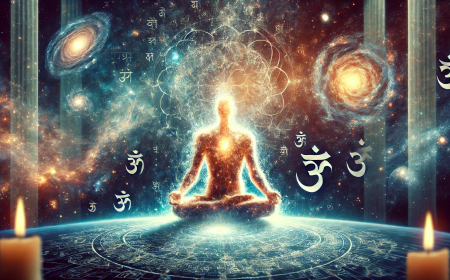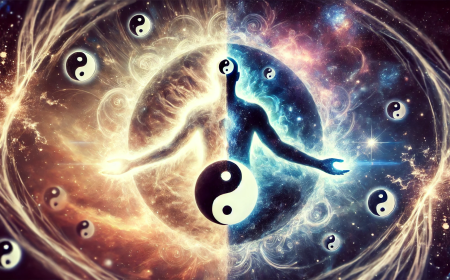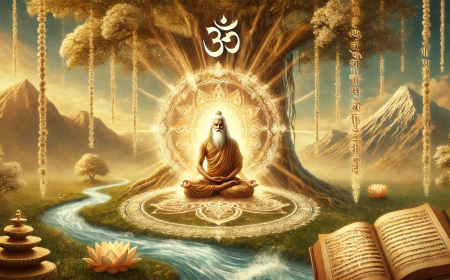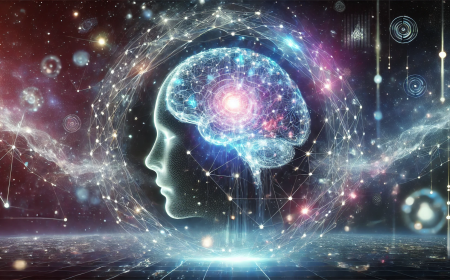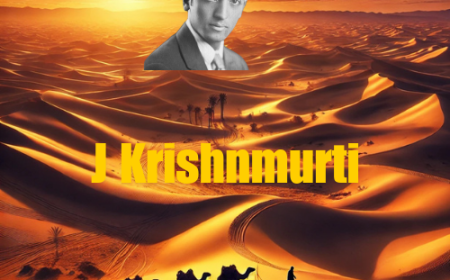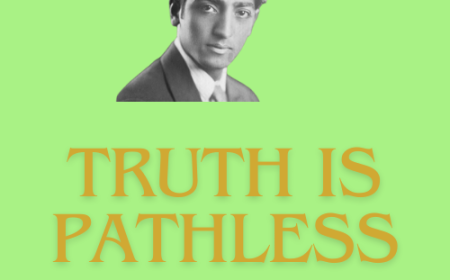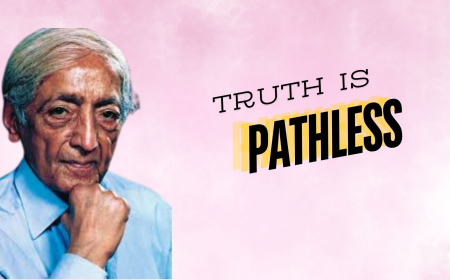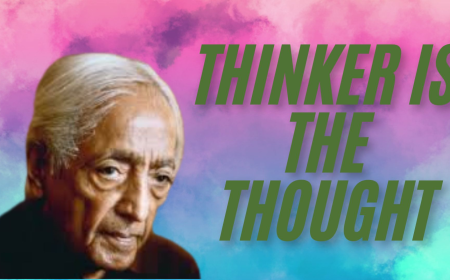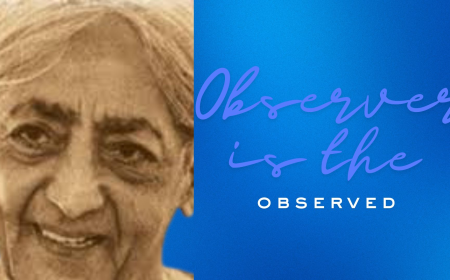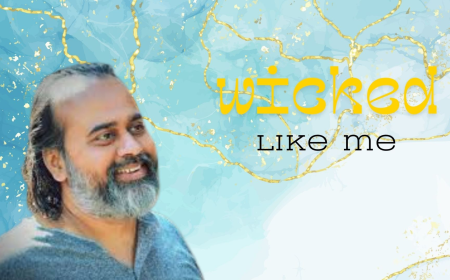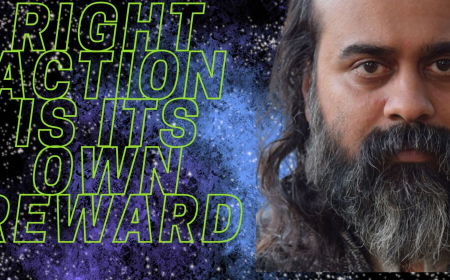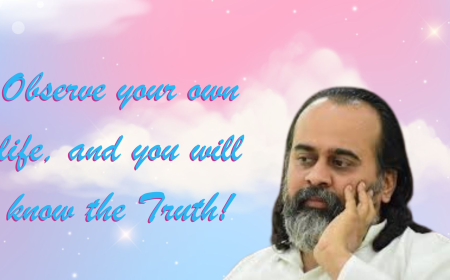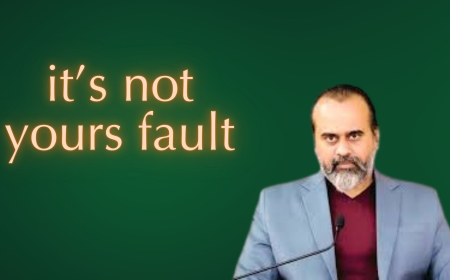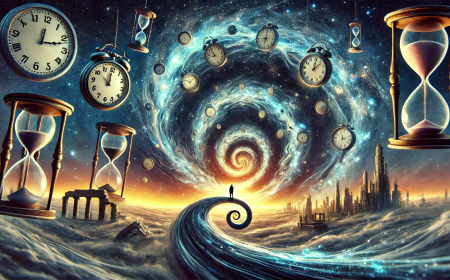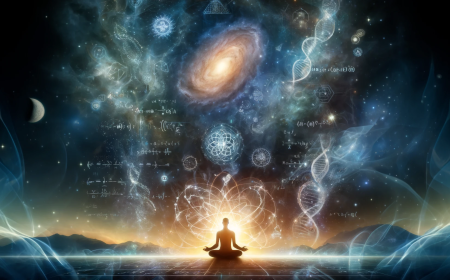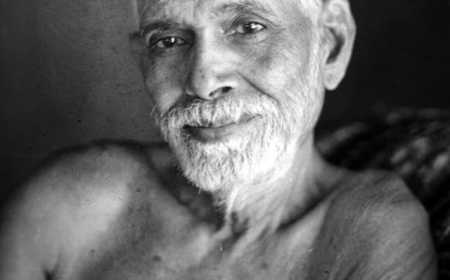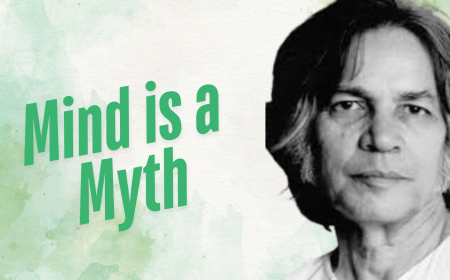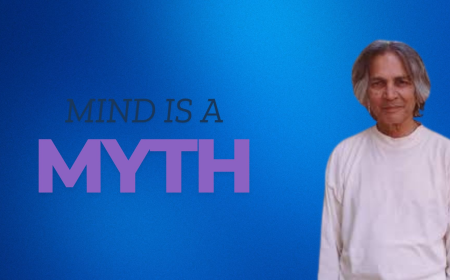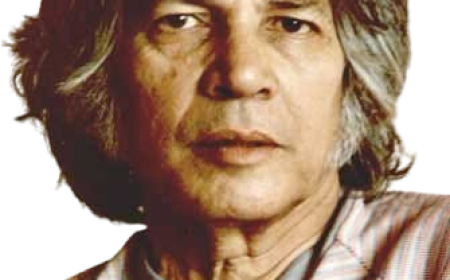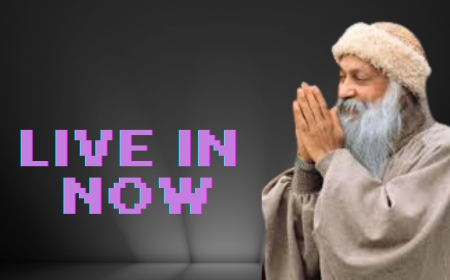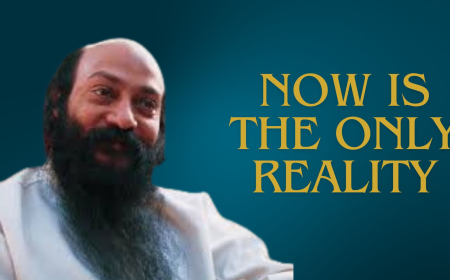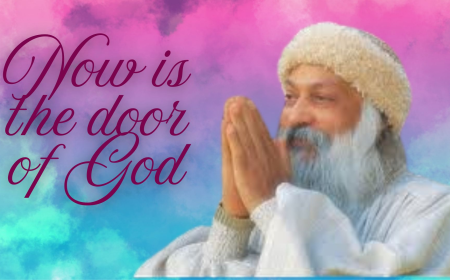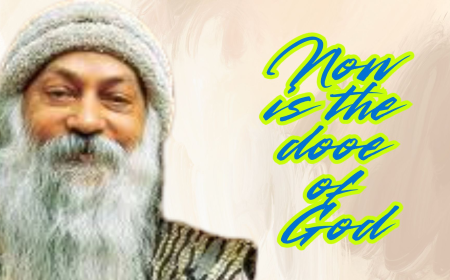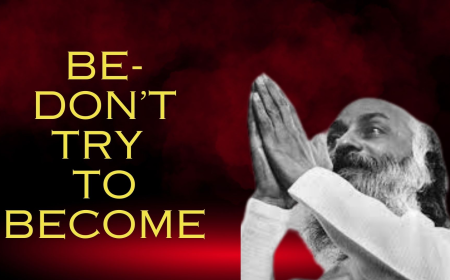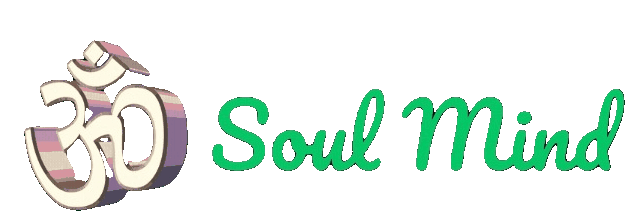Ug Krishnmurti: Meditation is Evil
U.G. Krishnamurti challenged traditional spirituality, calling meditation 'evil' as he saw it as conditioning the mind. Discover his radical views on self-realization and enlightenment.
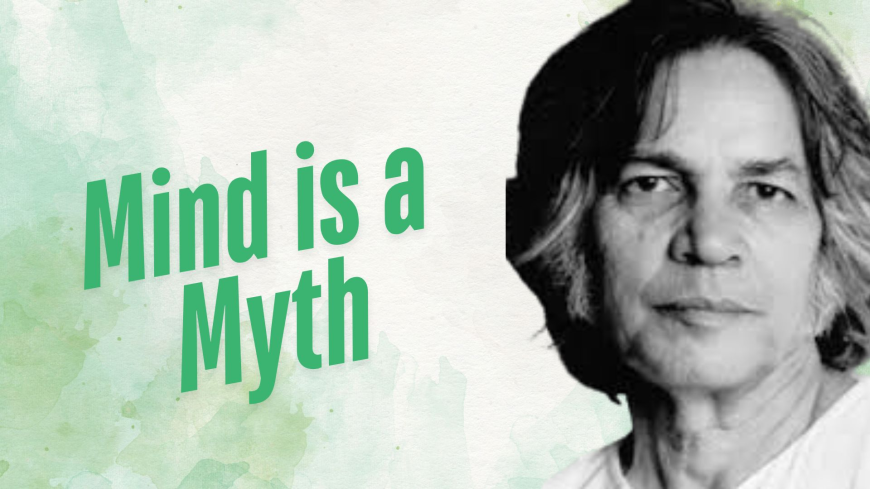
Contrary to popular belief, meditation and the quest for spiritual awakening might be doing more harm than good. This radical perspective comes from UG Krishnamurti, a controversial figure who challenged everything we think we know about spirituality and consciousness.
After years of intense meditation and spiritual practices, UG Krishnamurti reached a startling conclusion: the mind is myth, and traditional meditation actually creates psychological conflict rather than peace. His own transformative experience, which he called "the calamity," led him to declare that seeking enlightenment through meditation is fundamentally flawed.
This article explores UG Krishnamurti's unconventional insights, examining why he believed meditation could be harmful, how the body's natural intelligence operates without thought, and what scientific research reveals about these claims. We'll also investigate why his message continues to challenge spiritual seekers worldwide.
Who Was UG Krishnamurti?
Born in Machilipatnam, India in 1918, UG Krishnamurti emerged as one of the most unconventional philosophers who questioned the very foundation of spiritual liberation [1]. Following his mother's death just seven days after his birth, UG was raised by his grandfather, a wealthy Brahmin lawyer deeply involved with the Theosophical Society [1].
Early life and spiritual search
During his teenage years, UG inherited his grandfather's connection to the Theosophical Society, subsequently embarking on an intense spiritual journey [1]. Between ages 14 and 21, he undertook numerous spiritual exercises, determined to discover whether moksha (liberation) was truly attainable [1].
A pivotal moment occurred in 1939 when UG, then 21, met the renowned spiritual teacher Ramana Maharshi. Upon asking Ramana, "This thing called moksha, can you give it to me?" Ramana responded, "I can give it, but can you take it?" This exchange fundamentally altered UG's perception of spiritual paths and their practitioners [1].
The 'calamity' experience
At age 49, UG underwent what he termed "the calamity" - a profound biological transformation that shattered conventional notions of spiritual awakening [1]. Furthermore, this experience manifested as an intense physical phenomenon, affecting every cell and nerve in his body [1].
The calamity unfolded over eight days, characterized by:
· Tremendous energy surges shaking his entire body
· Complete transformation of sensory perceptions
· A death-like experience culminating in a new state of being [1]
Significantly, UG emphasized that this transformation occurred "in spite of" his spiritual seeking, not because of it [1]. He maintained that the calamity had no connection to his previous spiritual practices or upbringing, describing it as purely chance occurrence [1].
Key teachings and message
Following the calamity, UG functioned in what he called "the natural state" - a condition of spontaneous, purely physical existence marked by discontinuous thought patterns [1]. Moreover, he claimed to have lost all acquired knowledge and memories, necessitating a complete relearning process [1].
UG's core message centered on several fundamental principles:
· The rejection of traditional spiritual paths and practices
· The assertion that enlightenment itself is an illusion
· The understanding that the body possesses its own intelligence beyond thought [2]
"There is no teaching of mine, and never shall be one," UG declared, emphasizing that his words merely described his functioning state [2]. He consistently maintained that transformation to the natural state remains a rare, acausal biological occurrence without religious context [1].
Throughout his life, UG challenged spiritual orthodoxy with uncompromising directness. His approach generated sharply divided opinions - some considered him enlightened, while others dismissed him as a charlatan [1]. Nevertheless, his radical perspective continues to influence discussions about consciousness and spiritual awakening [3].
The Problem with Traditional Meditation
Traditional meditation practices often create unexpected challenges for practitioners, leading to what researchers identify as meditation-induced anxiety and psychological distress [4]. Despite its widespread adoption, mounting evidence suggests meditation might not be the peaceful practice many assume it to be.
Why meditation creates inner conflict
Meditation inherently involves a paradoxical struggle - using mental activity to cease mental activity. This self-contradictory process creates an endless loop of frustration [5]. The very act of trying to achieve peace through meditation becomes a source of internal tension.
Studies reveal that meditation can trigger various adverse effects:
· Anxiety occurs in 33% of practitioners [6]
· Depression manifests in 27% of cases [6]
· Cognitive anomalies appear in 25% of individuals [6]
Additionally, research indicates that longer meditation sessions correlate with increased unwanted effects, particularly during solo practice compared to group settings [4]. These findings challenge the conventional wisdom about meditation's universally beneficial nature.
The myth of controlling thoughts
The fundamental misconception about meditation centers on thought control. Many practitioners believe success means achieving a completely blank mind. However, attempting to suppress thoughts actually intensifies their frequency and impact [7].
UG Krishnamurti particularly emphasized this point, describing meditation as "evil" precisely because it creates artificial conflict with the mind's natural functioning [8]. He maintained that thought suppression is essentially psychological violence against oneself.
The body naturally rejects attempts to redirect its energy through meditation techniques. According to scientific studies, focused attention practices associate with more adverse effects, whereas body awareness approaches show fewer negative outcomes [4]. This aligns with UG's assertion that the body possesses its own intelligence that resists artificial control.
Meditation often becomes a tautological trap - practitioners believe they haven't meditated "enough" only when they fail to achieve the desired state of thoughtlessness [5]. Consequently, this creates a cycle of:
· Increasing frustration with persistent thoughts
· Heightened self-criticism
· Growing anxiety about meditation "failure"
· Renewed attempts at thought control
Research confirms that even individuals with no previous mental health issues may experience adverse events during or after meditation [6]. These effects can persist for extended periods, with challenging experiences lasting between one to three years in some cases [6].
Instead of achieving the promised state of peace, practitioners frequently encounter what UG termed "the peace between two wars" - temporary relief followed by renewed internal conflict [9]. This pattern emerges primarily because meditation attempts to impose artificial control over the mind's natural tendency to think and process information.
The scientific community increasingly acknowledges these concerns, noting that heavily structured meditation techniques may conflict with practitioners' actual experiences [4]. This recognition validates UG's radical perspective that traditional meditation approaches fundamentally misunderstand the nature of consciousness and mental activity.
The Body's Natural Intelligence
Your nervous system orchestrates an intricate dance of biological processes without any conscious intervention. This remarkable intelligence operates through billions of neurons sending signals across your body, controlling everything from heartbeat to digestion [10].
How the body functions without thought
The autonomic nervous system manages vital functions independently of conscious control. This sophisticated network coordinates:
· Heart rhythm and blood pressure regulation
· Digestive processes and metabolism
· Temperature control through sweating
· Pupil dilation and contraction [11]
The body maintains precise homeostasis through chemical messengers called neurotransmitters and hormones. For instance, upon detecting dehydration, the body automatically adjusts blood volume and triggers thirst [11]. Similarly, in moments of stress, the adrenal glands release epinephrine, preparing the body for action by increasing heart rate and redirecting blood flow to muscles [11].
The illusion of psychological control
Although the brain seeks security through control, this psychological need often interferes with the body's natural functioning [12]. The mind's constant attempt to regulate bodily processes through thought creates unnecessary conflict between mental demands and physical intelligence [13].
UG Krishnamurti emphasized that the body possesses extraordinary intelligence capable of living without mental interference. The only genuine needs are survival and reproduction - the body requires no transformation or improvement [14]. Furthermore, it maintains dynamic peace when freed from thought's perpetual pleasure-seeking movement [14].
Understanding biological wisdom
The body demonstrates remarkable healing capabilities through its inherent intelligence. Given the opportunity, it can address health issues using its own resources and power of renewal [14]. This biological wisdom operates through complex neural networks involving:
The prefrontal cortex manages emotional regulation and decision-making through top-down control of limbic regions [3]. Meanwhile, the medial prefrontal cortex facilitates prosocial behaviors and emotional processing [3]. This intricate system allows the body to function harmoniously without conscious intervention.
The body exists in perfect harmony with both tangible and intangible aspects of the cosmos [15]. As UG noted, this intelligence becomes fully operational only when freed from thought's distorting interference [14]. At this point, the senses function independently at peak capacity, unhindered by the separative thought process [16].
Ultimately, the body's intelligence surpasses acquired intellectual knowledge [16]. The pursuit of permanence and pleasure through mental control gradually diminishes bodily sensitivity [16]. Therefore, allowing this natural intelligence to operate without interference may unlock our fullest potential for well-being.
Scientific Evidence Supporting UG's Views
Recent scientific studies validate many of UG Krishnamurti's unconventional views about meditation and consciousness. As research delves deeper into meditation's effects, evidence emerges supporting his warnings about its potential risks.
Research on meditation-induced anxiety
Clinical studies reveal that approximately 8% of meditation practitioners experience unwanted negative effects [17]. These adverse reactions include:
· Increased depression and anxiety
· Re-experiencing traumatic memories
· Executive dysfunction and social impairment [17]
Even more concerning, research indicates that meditation can trigger severe psychological disturbances in some individuals. Studies document cases of meditation-induced psychosis, mania, and suicidal thoughts, especially among those practicing intensively [17].
Neurological vs psychological change
Brain imaging research demonstrates that meditation produces measurable changes in neural structure and function. Studies show increased cortical thickness in areas related to emotional regulation and sensory processing [1]. Nonetheless, these neurological modifications don't necessarily translate to improved psychological well-being.
In fact, scientific investigations reveal that meditation can disrupt normal brain function. Extended meditation practice associates with:
· Altered activity in the default mode network
· Changes in neurotransmitter systems
· Modifications in brain connectivity patterns [1]
Notably, research confirms UG's observation about the body's electrical energy during transformative experiences. Studies document intense physiological changes, including severe pain and electrical surges traveling up the spine, mirroring UG's description of "the calamity" [18].
Studies on body intelligence
Modern neuroscience increasingly supports UG's emphasis on the body's innate intelligence. Research demonstrates that the immune system operates independently of conscious control, functioning as the most sophisticated defense mechanism [19]. This aligns with UG's assertion that acquired intelligence cannot match the body's natural wisdom.
Scientific evidence indicates that physiological consciousness manifests as excited electronic flux maintained in the brain, comparable to a television tube receiving thought-waves and creating visualization [18]. Furthermore, studies confirm that memory exists in chemical form within neurons, functioning similarly to magnetic tape or computer disks [18].
Investigations into embodied cognition substantiate UG's perspective on the body-mind relationship. Research shows that cognition develops through bodily interactions with the environment [20]. This supports UG's claim that understanding emerges through physical experience rather than abstract thought.
Current scientific understanding reveals that the body possesses remarkable self-regulatory capabilities. Studies demonstrate how biological systems maintain homeostasis without conscious intervention [20]. Indeed, research confirms that attempting to control these natural processes through meditation often creates unnecessary psychological tension [17].
Breaking Free from Spiritual Seeking
The relentless pursuit of spiritual enlightenment often becomes a self-perpetuating trap, creating an endless cycle of seeking that leads nowhere. UG Krishnamurti's radical perspective challenges the very foundation of spiritual practices and the concept of enlightenment itself.
The trap of enlightenment
The search for enlightenment, transformation, or moksha becomes the primary source of human suffering [2]. Through generations, spiritual traditions have passed down knowledge about enlightenment, programming seekers to believe they lack something essential [21]. This cultural conditioning creates an artificial need for transformation.
Spiritual seeking operates through several deceptive mechanisms:
· The thought structure itself prevents recognition of one's natural state
· The model of perfection implies everyone else's imperfection
· The pursuit of future states denies present reality [21]
As UG pointed out, spiritual goals merely extend material pursuits onto an imagined higher plane [16]. The seeker's mind creates time and space, projecting enlightenment into a hypothetical future that never arrives. This projection maintains thought's continuity through an endless cycle of seeking [22].
Living without goals or methods
Breaking free from spiritual seeking requires understanding its fundamental nature. UG demonstrated this by:
· Refusing formal lectures or organizations
· Collecting no money from seekers
· Maintaining no students or followers [2]
The path forward lies in recognizing that "there is no spiritual path" and "nothing outside of you" [2]. This understanding emerges not through conceptual knowledge yet through seeing the futility of seeking itself. Once this insight dawns, the demand to solve existential problems naturally ceases [23].
Fundamentally, life itself provides everything necessary without requiring spiritual methods or practices [21]. The body's natural intelligence functions perfectly without intervention from thought-based spiritual techniques. This understanding allows participation in life directly, without the mediating filter of spiritual concepts or goals [21].
The freedom from seeking manifests as:
· Spontaneous living without psychological control
· Direct embrace of present reality
· Natural functioning without spiritual overlay [21]
Spiritual practices often promise future transformation through self-denial and asceticism. Still, UG regarded such approaches as perverse, noting they merely disturb the body's natural metabolism [16]. The desire for enlightenment itself becomes the final attachment requiring release.
Most compelling, UG demonstrated that living without spiritual goals doesn't mean nihilism or meaninglessness. On the contrary, it allows the body's intelligence to function optimally, freed from the burden of seeking [2]. This state emerges not through effort yet through understanding the futility of all methods.
The trap dissolves upon seeing that enlightenment exists neither in the present nor future [22]. The very structure creating time and projecting enlightenment forward must be seen through completely. This seeing happens without method or practice, as methods themselves perpetuate the seeking they claim to end [21].
Conclusion
Traditional spiritual practices and meditation techniques promise enlightenment yet often create psychological conflict rather than peace. UG Krishnamurti's radical message challenges seekers to question their fundamental assumptions about consciousness and spiritual awakening. Scientific research now validates many of his unconventional views, particularly regarding meditation-induced anxiety and the body's natural intelligence.
Rather than pursuing enlightenment through structured practices, UG's experience suggests allowing the body's innate wisdom to function without interference. This natural state emerges not through effort or method but through understanding the futility of spiritual seeking itself. The body already possesses remarkable self-regulatory capabilities and operates perfectly without thought-based intervention.
UG Krishnamurti's legacy offers a stark warning: spiritual practices might actually prevent us from recognizing our natural state. His message remains relevant today as more practitioners report adverse effects from intensive meditation. Perhaps true freedom lies not in achieving some future state of enlightenment but in seeing through the very structure that creates the need for seeking.
References
[1] - https://pmc.ncbi.nlm.nih.gov/articles/PMC11591838/
[2] - http://www.advaita.org.uk/discourses/teachers/ugk_caplan.htm
[3] - https://pmc.ncbi.nlm.nih.gov/articles/PMC3698847/
[4] - https://pmc.ncbi.nlm.nih.gov/articles/PMC5584749/
[5] - http://ug-krishnamurti.blogspot.com/2010/09/reflections-on-meditation-dr.html
[6] - https://onlinelibrary.wiley.com/doi/10.1111/acps.13225
[7] - https://jiwanbhattarai.com/blog/meditation-misconceptions-debunking-the-myth-of-thought-control/
[8] - https://www.reddit.com/r/Krishnamurti/comments/1f394q8/meditation_is_evil_ug_krishnamurti/
[9] - https://www.youtube.com/watch?v=DyxSvH9nhWw
[10] - https://my.clevelandclinic.org/health/body/21202-nervous-system
[11] - https://www.merckmanuals.com/home/fundamentals/the-human-body/organ-systems
[12] - https://krishnamurticenter.org/is-control-an-illusion-2024/
[13] - https://www.organism.earth/library/document/natural-state-4
[14] - http://ug-krishnamurti.blogspot.com/2010/09/thought-natural-state-and-body.html
[15] - https://www.heartofyoga.com/blog/2021/3/12/the-influence-of-ug-krishnamurti-on-yoga
[16] - https://medium.com/original-philosophy/who-is-ug-krishnamurti-d1f23e801be0
[17] - https://pmc.ncbi.nlm.nih.gov/articles/PMC8845498/
[18] - http://ug-krishnamurti.blogspot.com/2010/09/response-to-science-and-spirituality.html
[19] - https://en.wikisource.org/wiki/Science_and_U.G.
[20] - https://pmc.ncbi.nlm.nih.gov/articles/PMC3512413/
[21] - https://www.heartofyoga.com/blog/ug-krishnamurti
[22] - https://m.facebook.com/ugkrishnamurtime/videos/enlightenment-does-not-exist/8608271692581680/
[23] - https://www.catalign.in/2020/06/why-does-u-g-krishnamurti-ask-is
What's Your Reaction?







